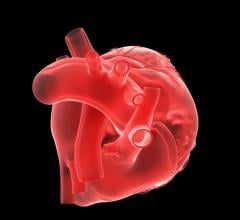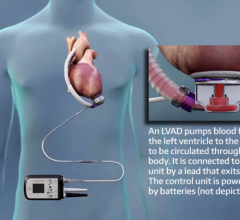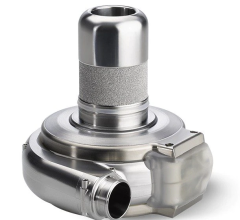April 22, 2008 - Thoratec Corp. received FDA approval of its PMA (PreMarket Approval) application, allowing the use of its HeartMate II LVAS (Left Ventricular Assist System) as a bridge-to-transplantation (BTT) in patients suffering from advanced-stage heart failure.
The HeartMate II is the first continuous flow device to receive FDA approval for this intended use in the U.S. The HeartMate II is a mechanical circulatory support device intended for a broad range of advanced-stage heart failure patients. An axial flow device, the HeartMate II can pump up to 10 liters of blood per minute, the full output of a healthy heart, and is designed to provide long-term cardiac support. The device is implanted alongside a patient's native heart and takes over the pumping ability of the weakened heart's left ventricle. It is easier to implant than prior devices, and with only one moving part, the HeartMate II is designed to provide exceptional reliability and improved patient quality of life. The device is designed to have a much longer functional life than the previous generation of devices and to operate more simply and quietly.
The approval follows a clinical trial involving more than 450 BTT patients, including those enrolled under Continued Access Protocols, and a recommendation for approval from the FDA Circulatory System Devices Advisory Panel last November. The approval was based on one-year follow-up data from the first 194 HeartMate II BTT patients enrolled in the trial. Highlights of the data included in the final PMA submission included:
- The median duration of support was 132 days, and the cumulative patient support in the trial was 109 years.
- Survival to cardiac transplantation, recovery or ongoing on HeartMate II support was 80 percent at six months and 77 percent at one year.
- Eighty four percent of the patients survived to hospital discharge or transplantation.
-- Significant improvements were observed across all measures of functional status and quality of life as compared to baseline status.
- The incidence of major adverse events with comparable definitions -- including infections, strokes and bleeding requiring surgery -- was significantly lower than what was clinically observed in the previous BTT study of the HeartMate VE LVAS.
The approval allows the HeartMate II to be used to treat small patients (BSA
For more information: www.thoratec.com and www.itcmed.com


 June 19, 2024
June 19, 2024 









